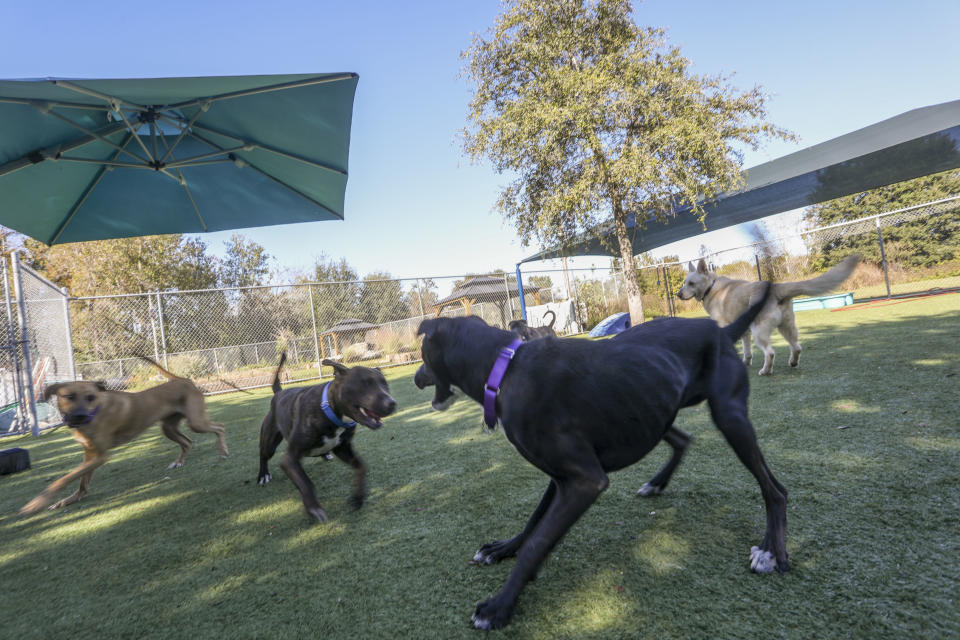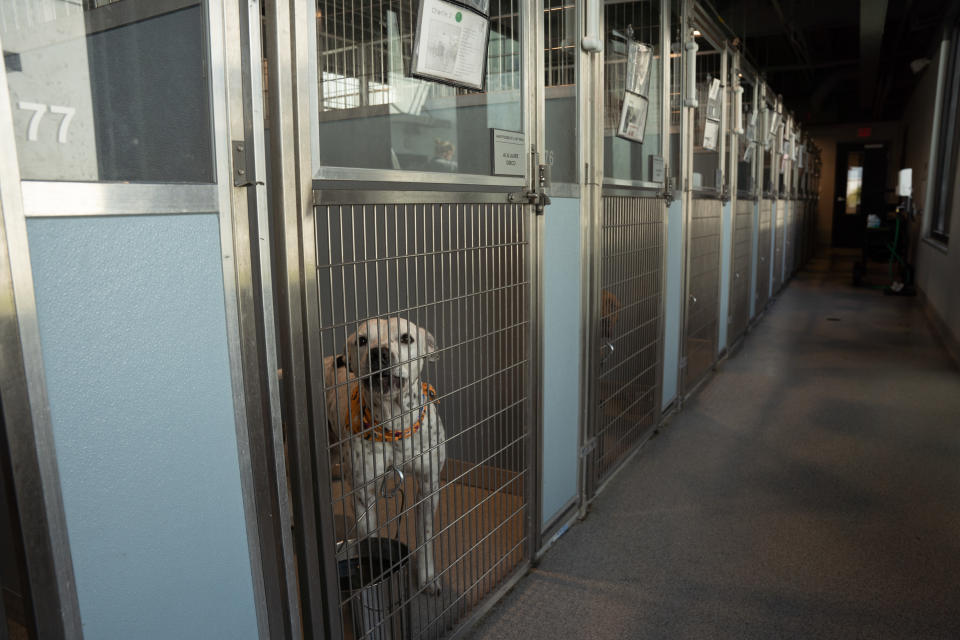Some Tampa Bay animal shelters have stopped taking dogs, and here’s why
A bad outbreak of dog flu has stopped Hillsborough County’s two largest shelters from taking in stray dogs for the next two weeks as they try to halt the highly contagious infectious disease. Pasco County has also put a pause on taking in dogs for the next week as it tries to stop the spread.
Hillsborough County’s Pet Resource Center moved 290 dogs out of its Falkenburg Road shelter so it can be deep-cleaned. Meanwhile, the Humane Society of Tampa Bay announced that for the first time in its 112-year history, it stopped accepting dogs starting on Wednesday and will keep the ban in place until July 12 to protect the more than 200 dogs in its care.
The move does not affect cats, birds and other pets the shelters house.
“Our leadership did not make this decision lightly,” said Humane Society CEO Sherry Silk, “Unfortunately, this is an unprecedented situation that calls for extreme and immediate action to protect dogs in Tampa Bay.”
Pasco County Animal Services also suspended dog adoptions, intakes, surgeries and rescue transfers until at least July 3 “due to the presence of canine influenza,” an announcement said, but they have now extended it. “As a result of additional animals coming to the shelter and the continued need for testing, all dog operations will be suspended at Pasco County Animal Services at a minimum through July 18.”
Canine influenza usually involves a dry cough that can last for a week or two, as well as runny eyes, fever and lethargy. While dogs do tend to get over the flu, it is considered a bigger problem in shelters than in private homes because of the large number of animals housed together, which helps it spread. It can’t be passed to humans, researchers say, but it can be spread to dogs through contact if the virus is present on fur, skin or clothing.
After consulting with University of Florida researchers, Scott Trebatoski, director of the Hillsborough Pet Resource Center, said they were advised to just have a “clean break” to stem the tide of infections.
“We tried isolating the dogs but because the virus spreads so easily in the air it wasn’t doing any good,” Trebatoski said. “We were fortunate that we were able to move them off-site so we can decontaminate the entire shelter.”
He said the last big dog flu outbreak was in 2018 but it was in December, a time of year the shelter was empty enough to isolate the sick dogs. But summer is its busiest time, and they can sometimes take in 60-70 dogs a day.
The closing comes near the week of July 4, one that sometimes sees a spike in runaway dogs who get frightened by fireworks.
Trebatoski reminded pet owners to make sure their contact info is on their dog’s collar. And if you find a lost dog, he recommends walking around the neighborhood with it or post a picture on a neighborhood app or Facebook page. A majority of lost dogs are found within a block or two of their home, he said.
“If people find a dog while we are going through this, we are trying to encourage people to keep them until we reopen July 14,” Trebatoski said, “and if they need something like food or crates, just reach out to us.”


